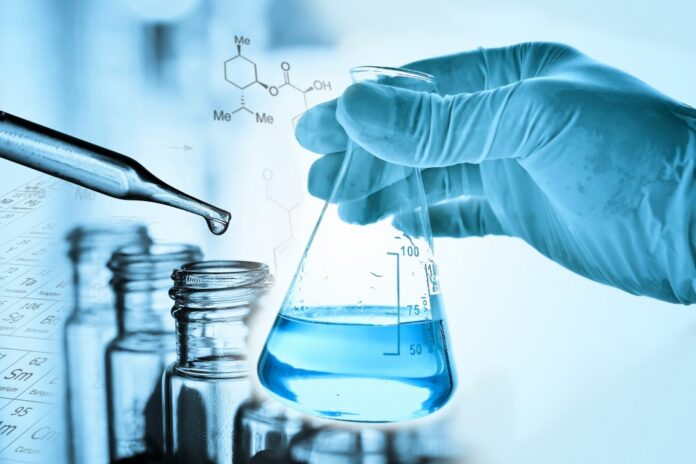
There are different types of water filtration systems currently on the market, from which you can chose to provide safe drinking water to your home. Each of these types of water filters all have their advantages and disadvantages. In addition to the pros and Cons, you should do a cost comparison of all these types of water filtration systems before purchasing one. There’s no doubt some variation based on brand, setup, power expenditure, and upkeep, but here have listed (and estimated) as most as well as possible. Take into consideration that reverse osmosis filtration systems will cost more than some of the other filters listed.
1. Under sink (under counter) water filtration systems
They are attached to the water line and mounted under your kitchen sink. Getting the best Under sink water filtration system is the ideal choice if you are looking for a filtration system for your home or office. It fulfills the need for affordability as well as quality. Under counter water filtration systems are also highly versatile and easy to install owing to their compact size. The systems use activated carbon filtration, which ensures that your drinking water is safe and pure from harmful chemicals, harmful minerals and unwanted microbes
Pros
- Filter system is out of sight.
- These models are smaller than other models and don’t take up space on the counter or in the fridge.
- They usually require less filter changing.
- They are generally more convenient than faucet filters or carafe filters, but they can be expensive.
- Ideal for drinking and cooking water
Cons
- Some require professional installation.
- can sometimes be expensive.
- takes up cabinet space.
2. Water filter Pitchers
A water filter pitcher is the best and most cost-effective way to transform your tap water into H 2O. These portable purification pitchers can be used for small household needs or travel. The pitcher works by straining very little water through activated carbon filters and then storing it in its lower half. Common brands of water pitcher claim to have benefits such as lead reduction, heavy metal removal and elimination of all dissolved substances. To ensure that you don’t buy inferior products, it is important to check for certifications from NSF and Water Quality Association.
Pros: Low upfront cost; no installation needed.
Cons: These pitchers have a few drawbacks. They don’t produce enough water to drink for more than two or three people at once, take some time to refill and rely on one filter to extract particulate and eliminate odors.
Filtration does not eliminate all contaminants. It is necessary to change filters every few months. This will increase the annual cost of the filter system.
3. Faucet-mounted water filters
Faucet mounted filters are one of the most common types of water filtration options available. They fit directly onto the faucet, hence their name. The downside is that these are typically much smaller than you would like, and you might need to get one with a larger diameter pipe.
Pros: Easy to install and affordable Simply attach to your faucet, and you’re done!
Cons: They are not compatible with all faucets. You will need to replace faucet filters more frequently than the other carbon filters.
4. Whole house water filtration systems
The next most common filter system type is the whole home water purification system. This is generally the most effective way to filter your own water and although more costly, it is generally less costly than purchasing bottled water. The benefits of whole house water filtration systems are almost endless. This type of filtration is great for anyone who wants to clean their own water, whether for drinking, showering or cooking. It is also great for anyone who is concerned with having contaminants in the water they drink. These systems come in many different styles and sizes and can be very beneficial depending on what you are looking for. The pros and cons of whole house water filtration systems may help you decide if this is the right filtration system for you.
Pros: The major advantage of whole house water filtration systems is the variety of contaminant removal that they offer. These systems can remove a host of potential contaminants, tailored to your water problems. Also, keep in mind that many systems include a countertop reverse osmosis unit, which can be helpful if you have a larger water filtering system in your home. The cost is comparable to some of the more expensive options, but the ability to remove many common contaminants can save you money in the long run.
Cons: Some of these systems can be quite bulky and expensive, especially if you need a lot of them. Also, it may be harder to keep up with changing filters when you have such a large system. In addition, you will have to periodically change filters if you want to maintain your water purification. There are some cons to consider as well. Water purification can be complicated and oftentimes you will need to use some form of water purification maintenance.
5. Countertop water filters
Unlike water purifiers that sit on your counter or in your refrigerator, countertop water filters are built into your kitchen sink. These filters are placed on your counter and can be connected to your faucet. Like all water filtration systems, countertop water filters remove chlorine from your household water. These filters also take out harmful chemicals such as pesticides from your water.
Pros
One of the biggest pros to countertop water filters is that you can install them right under your counter without having to worry about messing with plumbing. Another pro to countertop filters is that you can install them almost anywhere. They fit well under counter tops, in sinks, under deck boards and even behind your toilet if you want to.
They are less likely to block and slow down pour rates. They are less likely to require frequent filter changes than faucet or carafe options.
Cons
They are not compatible with all faucets and take up counterspace.
Another con to countertop water filters is that they are expensive but compared to other countertop products such as water softeners and ice makers, they are actually pretty affordable.
6. Reverse osmosis filtration systems
Reverse osmosis filters are filters designed to remove contaminants from water that ordinarily would pass through other filtration system. RO water filtration systems will remove All the chemicals and heavy metal that carbon filters remove and additional ones that they may miss. Reverse osmosis works by pushing the water through a large semi-permeable membrane that has a very fine physical structure that only allows water molecules through as big as the pores of the membrane itself (blocks impurities). The impurities will be separated out and washed away through a waste fluid.
The pros and cons of these types of filters will depend on your specific situation, whether or not you have contaminated water, and the type of contaminants involved.
Pros
Reverse-osmosis filter are generally more effective in removing pollutants. They are a good option for anyone whose tap water contains PFAS. Reverse osmosis is great for large volume water purification because it works great at removing large particulates of sediment and sediments from your water.
Cons
They are slower and more difficult to maintain. Reverse osmosis is known for wasting water and using more energy. You can find units with permeate pumps to reduce water waste.
7. UV filtration Systems
This UV light system filters your water. They do not’ remove’ anything, but they disinfect the water using UV light which is lethal to the microorganisms. Hence, this system does not use heat or chemicals to remove contaminants.
Pros
Ultraviolet light units kill bacteria and microorganisms hence disinfecting water.
Cons
They don’t remove heavy metals and chemicals. Any color in water can prevent UV from working. Sometimes filtration is required prior to UV, therefore, they are best when used in conjunction with a reverse-osmosis or carbon filtration system.





